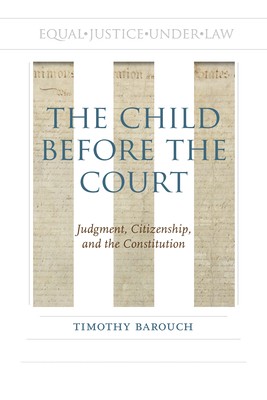
- We will send in 10–14 business days.
- Author: Timothy Barouch
- Publisher: University Alabama Press
- ISBN-10: 0817320989
- ISBN-13: 9780817320980
- Format: 15 x 23.1 x 2.8 cm, kieti viršeliai
- Language: English
- SAVE -10% with code: EXTRA
Reviews
Description
A study that challenges our notions about citizenship and judgment by considering the place of children in historical and contemporary legal discourse Many of the most controversial political issues of our time focus on the actions and well-being of children such as Greta Thunberg's climate movement; youth activists standing up for racial justice, safe schools, and an equitable economy; and the furor over separating migrant children from their families. When do we treat children as competent citizens, when do we treat them as dependents in need of protection, and why? The Child before the Court: Judgment, Citizenship, and the Constitution provides answers to these foundational questions. It analyzes landmark US Supreme Court cases involving children's free speech and due process rights and argues that our ideas about civic and legal judgment are deeply contested concepts instead of simple character traits. These cases serve as analytic touchstones for these problems, and the Court's opinions seemingly articulate clear rules through a pragmatic balancing of interests. Timothy Barouch shows how these cases continually reshape constitutional thought, breaking from a vocabulary of wardship and recasting the child as a liberal individual. He analyzes these legal opinions as judicial novelizations and focuses on their rhetorical markers: the range of tropes, idioms, figures, and arguments that emerge across nearly two centuries of jurisprudence in this important but oft-neglected area. The careful and subtle readings of these cases demonstrate how judicial representations of the child provide key resources for thinking about the child as citizen and, more broadly, citizenship itself. It serves as a bold call to think through the relationship between the liberal individual and the problem of civic judgment as it manifests in public culture in a wide array of contexts at a time when liberal democracy is under siege.EXTRA 10 % discount with code: EXTRA
The promotion ends in 23d.14:04:16
The discount code is valid when purchasing from 10 €. Discounts do not stack.
- Author: Timothy Barouch
- Publisher: University Alabama Press
- ISBN-10: 0817320989
- ISBN-13: 9780817320980
- Format: 15 x 23.1 x 2.8 cm, kieti viršeliai
- Language: English English


Reviews